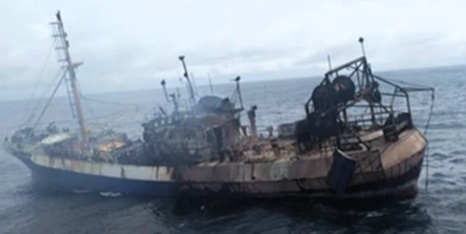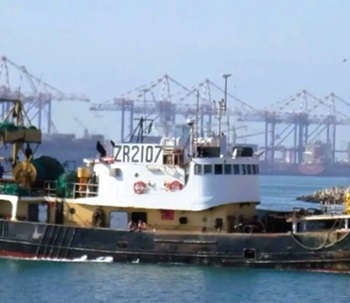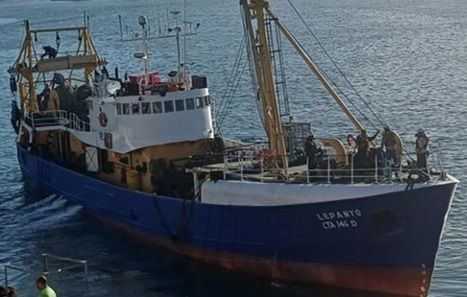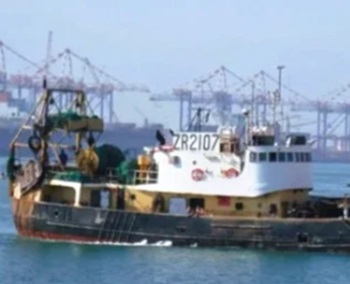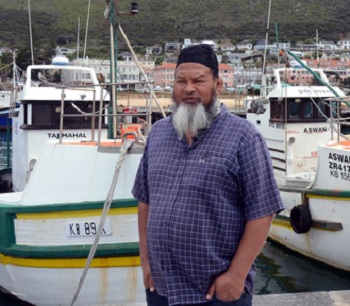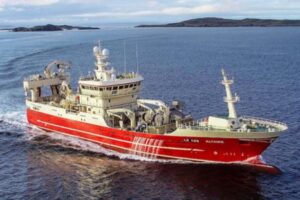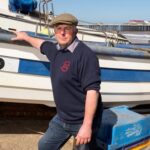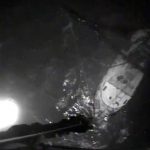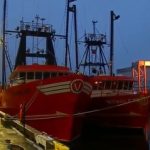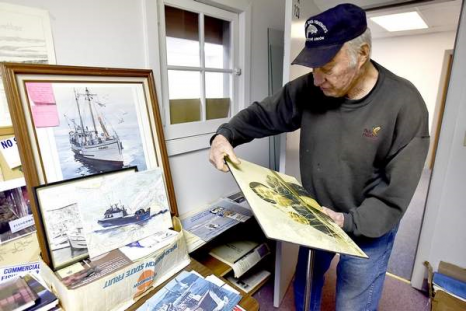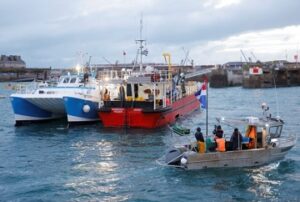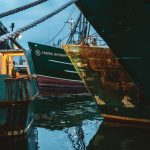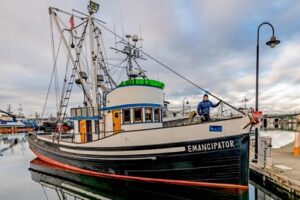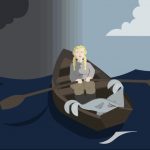Tag Archives: South Africa
Our ocean, communities not for sale – Fishers
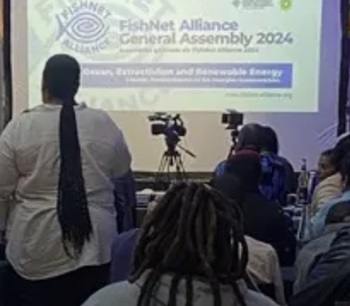 Our ocean, communities and our sociocultural wellbeing are not for sale. This statement formed part of the declarations made by FishNet Alliance, a network of fishers across the coast of Africa, at the close of its General Assembly and Conference held on Thursday, August 22, 2024, in Durban, South Africa. Themed: “Ocean, Extractivism and Renewable Energy”, the gathering was attended by members of the Alliance from South Africa, Senegal, Togo, Nigeria, Mozambique, including new members from Uganda, South Sudan and Cameroon as well as Oilwatch Africa and Oilwatch International members and allies from 20 countries. “We denounce and reject any form of grabbing of our waters for the production of so-called green hydrogen,” submitted the fishers, adding that all deltas and protected areas in Africa must be declared no-mining and no-exploitation zones. more, >>CLICK TO READ<< 14:54
Our ocean, communities and our sociocultural wellbeing are not for sale. This statement formed part of the declarations made by FishNet Alliance, a network of fishers across the coast of Africa, at the close of its General Assembly and Conference held on Thursday, August 22, 2024, in Durban, South Africa. Themed: “Ocean, Extractivism and Renewable Energy”, the gathering was attended by members of the Alliance from South Africa, Senegal, Togo, Nigeria, Mozambique, including new members from Uganda, South Sudan and Cameroon as well as Oilwatch Africa and Oilwatch International members and allies from 20 countries. “We denounce and reject any form of grabbing of our waters for the production of so-called green hydrogen,” submitted the fishers, adding that all deltas and protected areas in Africa must be declared no-mining and no-exploitation zones. more, >>CLICK TO READ<< 14:54
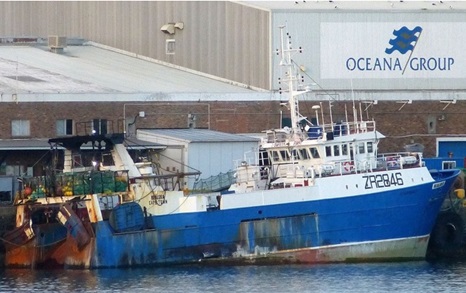
Full investigation into fatal explosion aboard fishing trawler launched
Oceana Group Limited said the fatal explosion aboard one of its fishing trawlers docked near Amawandle Hake in Table Bay Harbour will be fully investigated. Contractors were busy with repairs on board the vessel, identified as the Realeka, at around 5pm on Monday when a nitrogen tank exploded. Five men who were injured in the explosion were transported to a nearby hospital for medical attention, while a 49-year-old man was declared dead at the site. Emergency personnel combed the scene for several hours on Monday night while ventilating the engine room of refrigeration gas, which could be an ammonia-containing combination. A hazmat technician was also present while gas detection meters were requested. more, >>CLICK TO READ<< 09:26
22 fishermen rescued from sinking fishing vessel off the coast of Cape Town
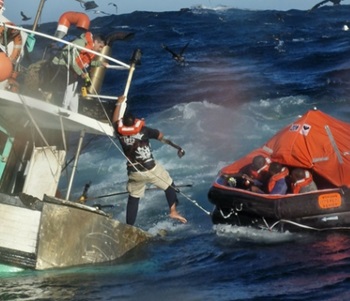 At 09h36, Friday, 26 April, NSRI Hout Bay and NSRI Table Bay duty crews were placed on alert following reports from MRCC (Maritime Rescue Coordination Centre) of a local 35 meter long line fishing trawler taking on water (but under tow and pumping water free) about 30 nautical miles off-shore South West of the Port of Table Bay. A fellow local fishing trawler had taken the casualty fishing trawler under tow. We believe that the local casualty fishing trawler had started taking water in the early hours of the morning and had started heading towards Hout Bay harbour, confident that they would reach the harbour in good time. more, >>CLICK TO READ<< 09:42
At 09h36, Friday, 26 April, NSRI Hout Bay and NSRI Table Bay duty crews were placed on alert following reports from MRCC (Maritime Rescue Coordination Centre) of a local 35 meter long line fishing trawler taking on water (but under tow and pumping water free) about 30 nautical miles off-shore South West of the Port of Table Bay. A fellow local fishing trawler had taken the casualty fishing trawler under tow. We believe that the local casualty fishing trawler had started taking water in the early hours of the morning and had started heading towards Hout Bay harbour, confident that they would reach the harbour in good time. more, >>CLICK TO READ<< 09:42
KZN High Court upholds appeal against seizure of commercial fishing vessel
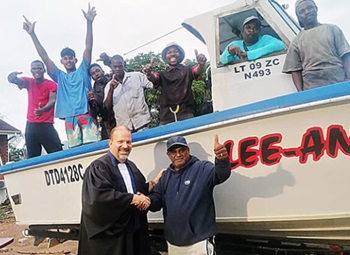 In a dramatic turn of events, the KZN High Court upheld an appeal against the seizure of a commercial fishing vessel belonging to a well-known local commercial fisherman, Mr Naraina (Harris) Naidoo, who operates out of Rocky Bay. The Scottburgh Magistrates Court had on August 4, 2022, ordered that Mr Naidoo’s vessel, ‘Lee-Ann’, be forfeited to the state as part of a sentence relating to violations of the Marine Living Resources Act. Mr Naidoo was overjoyed with the court’s decision as he estimated that replacing his vessel would cost in the region of R1 million. more, >>click to read<< 06:50
In a dramatic turn of events, the KZN High Court upheld an appeal against the seizure of a commercial fishing vessel belonging to a well-known local commercial fisherman, Mr Naraina (Harris) Naidoo, who operates out of Rocky Bay. The Scottburgh Magistrates Court had on August 4, 2022, ordered that Mr Naidoo’s vessel, ‘Lee-Ann’, be forfeited to the state as part of a sentence relating to violations of the Marine Living Resources Act. Mr Naidoo was overjoyed with the court’s decision as he estimated that replacing his vessel would cost in the region of R1 million. more, >>click to read<< 06:50
Deep sea trawling industry marks historic 50-year milestone
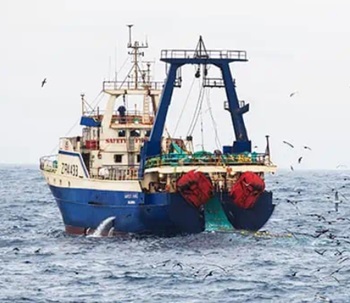 The South African Deep-Sea Trawling Industry Association (SADSTIA) which represents companies engaged in the catching, processing and marketing of Cape hake, marks its 50th anniversary in March. The anniversary comes just six months after the conclusion of a lengthy and demanding rights allocation process. The anniversary comes just six months after the conclusion of a lengthy and demanding rights allocation process. This process saw the Department of Forestry, Fisheries and the Environment (DFFE) allocate 15-year rights to the fishery, increasing the number of rights holders from 33 to 37. The fishery contributes an estimated R8,5 billion rand to the South African economy annually and supports approximately 12 400 jobs, mostly in the Western Cape, but also in the Eastern Cape. more, >>click to read<< 21:26
The South African Deep-Sea Trawling Industry Association (SADSTIA) which represents companies engaged in the catching, processing and marketing of Cape hake, marks its 50th anniversary in March. The anniversary comes just six months after the conclusion of a lengthy and demanding rights allocation process. The anniversary comes just six months after the conclusion of a lengthy and demanding rights allocation process. This process saw the Department of Forestry, Fisheries and the Environment (DFFE) allocate 15-year rights to the fishery, increasing the number of rights holders from 33 to 37. The fishery contributes an estimated R8,5 billion rand to the South African economy annually and supports approximately 12 400 jobs, mostly in the Western Cape, but also in the Eastern Cape. more, >>click to read<< 21:26
Work on grounded fishing vessel continues after halting due to bad weather
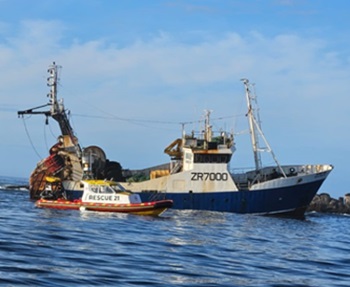 Operations to remove the pollutants from the fishing vessel ‘Elke M’ that ran aground in St Francis Bay on January 6, resumed this morning, January 12, after being suspended late yesterday, January 11, due to bad weather. South African Maritime Safety Authority spokesperson, Tebogo Ramatjie said that yesterday a helicopter assisted in the transfer of equipment to the vessel, and the pumping of onboard fuel into 4 bulk IBC containers was completed. more, >>click to read<< 16:04
Operations to remove the pollutants from the fishing vessel ‘Elke M’ that ran aground in St Francis Bay on January 6, resumed this morning, January 12, after being suspended late yesterday, January 11, due to bad weather. South African Maritime Safety Authority spokesperson, Tebogo Ramatjie said that yesterday a helicopter assisted in the transfer of equipment to the vessel, and the pumping of onboard fuel into 4 bulk IBC containers was completed. more, >>click to read<< 16:04
Crew members found safe on stranded fishing vessel located in St Francis Bay
 With help from various role players, the National Sea Rescue Institute in Kouga were able to rescue 24 crew members of a fishing vessel which ran aground at Shark Point in St Francis Bay on January 6. Sarah Smith, NSRI St Francis Bay station commander said that at 22:36 on January 6, NSRI St Francis Bay duty crew were activated following a call to NSRI Emergency Operations Centre (EOC) from (MRCC) Maritime Rescue Coordination Centre reporting a local 29-meter stern trawler fishing vessel, with 24 crew onboard, running aground at Shark Point, St Francis Bay. more, >>click to read<< 08:06
With help from various role players, the National Sea Rescue Institute in Kouga were able to rescue 24 crew members of a fishing vessel which ran aground at Shark Point in St Francis Bay on January 6. Sarah Smith, NSRI St Francis Bay station commander said that at 22:36 on January 6, NSRI St Francis Bay duty crew were activated following a call to NSRI Emergency Operations Centre (EOC) from (MRCC) Maritime Rescue Coordination Centre reporting a local 29-meter stern trawler fishing vessel, with 24 crew onboard, running aground at Shark Point, St Francis Bay. more, >>click to read<< 08:06
NSRI rescues grounded fishing vessel, saves 24 crew members
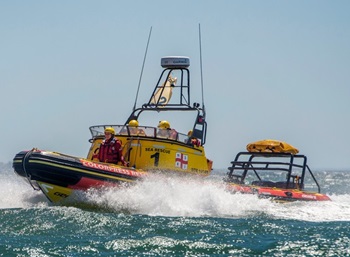 Members of the National Sea Rescue Institute (NSRI) rescued 24 crew members from a grounded 29 metre fishing vessel at St Francis Bay in Eastern Cape on Saturday. Sarah Smith, NSRI St Francis Bay station commander, said: “At 10.36pm, Saturday, January 6, NSRI St Francis Bay duty crew were activated following a call to NSRI EOC (Emergency Operations Centre) from MRCC (Maritime Rescue Coordination Centre) reporting a local 29 metre stern trawler fishing vessel, with 24 crew onboard, running aground at Shark Point, St Francis Bay. more, >>click to read<< 07:30
Members of the National Sea Rescue Institute (NSRI) rescued 24 crew members from a grounded 29 metre fishing vessel at St Francis Bay in Eastern Cape on Saturday. Sarah Smith, NSRI St Francis Bay station commander, said: “At 10.36pm, Saturday, January 6, NSRI St Francis Bay duty crew were activated following a call to NSRI EOC (Emergency Operations Centre) from MRCC (Maritime Rescue Coordination Centre) reporting a local 29 metre stern trawler fishing vessel, with 24 crew onboard, running aground at Shark Point, St Francis Bay. more, >>click to read<< 07:30
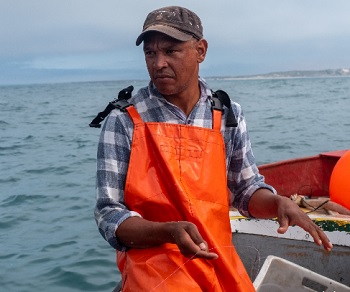
I Am a Small-Scale Fisherman Fighting to Save the Coasts of South Africa
I am Christian Adams and I am a fourth generation small-scale fisher. I grew up in a small town called Mamre. My grandfather was a very successful fisherman during the 1960s and 70s. He provided employment for about 60 families. He had 28 rowboats and employed two people on each boat. During lobster season, they would go camp at a place called Bokbaai and they would fish about 60 tons of lobster per year. In 1972, when the Apartheid government was planning to build Atlantis, they interviewed him and he said: “The only thing that we need is a proper road, some electricity in the phone line. We do not ask for anything else, because we are already thriving in our business that we have here.” None of that was provided and the Apartheid government instructed him to stop fishing at Bokbaai. Photos, >click to read< 10:06
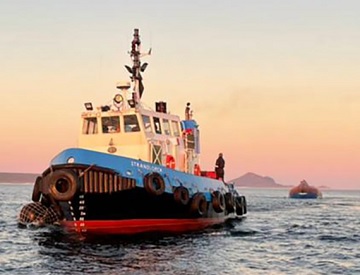
Salvage operation under way after fishing vessel capsizes
Early on Sunday morning, the Saldanha Bay-registered vessel, the Restless Wave, capsized eight nautical miles south of Cape Point. It happened quickly, with the National Sea Rescue Initiative (NSRI) saying: “It is believed that the vessel capsized in under a minute.” The good news is that none of the 12 crew on board was injured and all were rescued by nearby boats. The bad news was that the vessel, with a fuel capacity of 45,000 litres, was stranded upside down, threatening marine life in a biodiverse and protected area. These initial fears are subsiding as the salvage operation comes to an end. >click to read< 15:32
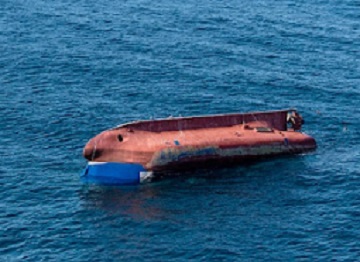
Salvage operation for capsized fishing vessel off Cape Point
The 24m Restless Wave capsized in the early hours on Sunday, prompting the successful rescue of all 12 crew who were uninjured in the accident, which is being investigated. However, the upturned vessel is adrift close to Cape Point, raising concern about a possible pollution threat. On Tuesday Samsa said: “Earlier today salvors and port officials met to formalise the process to tow the vessel to Cape Town. A separate vessel is standing by to recover the fishing gear once the Restless Wave is connected and clear of the area.” The vessel is a purse seine fishing vessel built by local boat builder Tallie Marine for the local fishing industry. >click to read< 09:14
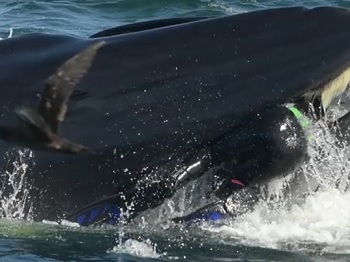
Diver survives after being scooped up in whale’s mouth off South Africa
A diver in South Africa survived an experience out of a biblical passage last month when he ended up almost being swallowed by a whale. Rainer Schimpf, 51, was snorkeling off the coast of Port Elizabeth, South Africa, when he ended up in the path of a Bryde’s whale, which opened his jaws and engulfed him headfirst.”We were very astonished that out of nowhere this whale came up,” he told Sky News. “I was busy concentrating on the sharks because you want to know if the shark is in front of you or behind you, left or right, so we were very focused on the sharks and their behavior — then suddenly it got dark.” Video, >click to read<
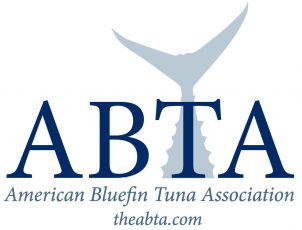
ICCAT Meeting Ends After ‘Spectacular Failure’ to Protect Bigeye Tuna
The International Commission for the Conservation of Atlantic Tunas (ICCAT) concluded its annual plenary meeting on November 19 after a spectacular failure to arrive to a comprehensive agreement on badly needed management measures to address the present poor state of Atlantic bigeye tuna stock. Bigeye tuna is highly coveted by sashimi markets worldwide, similar to bluefin tuna. ICCAT’s eight-day meeting, held this year in Dubrovnik, Croatia, was attended by over 700 people representing 52 countries. The U.S., Canada, South Africa and a handful of other nations strongly advocated for the adoption of measures that would end overfishing immediately and rebuild the stock within 10 years. However, >click to read<20:21
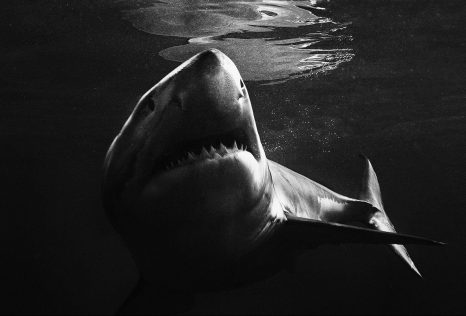
“It Just Consumed Me”
Normally, not something you want a shark scientist to say. But Eric Stroud is talking about his chemistry-lab quest for the ultimate shark repellent, which he appears to have found. The questions that remain: Does it work on the great white, the ocean’s most fearsome predator? And can a couple of rookie entrepreneurs get it to market? There’s a house in Mossel Bay, South Africa, high on a hill overlooking the Indian Ocean, five hours east of Cape Town, where shark nerds from around the world come to live each year. I arrived this past June, after a long day on a small boat watching great whites chasing roped tuna heads. click here to read the story 12:00
Illegal Lobster Harvest Costs Three $22.4M
 Three men convicted of illegally harvesting rock lobsters in South Africa and importing them to the U.S. must pay a $22.4 million restitution order, the 2nd Circuit ruled. Arnold Bengis and Jeffrey Noll pleaded guilty in Manhattan Federal Court to conspiracy to commit smuggling and to violating the Lacey Act, which bans trade in illegally retrieved wildlife; David Bengis pleaded guilty to conspiracy to violate the Lacey Act. Read the rest here 19:40
Three men convicted of illegally harvesting rock lobsters in South Africa and importing them to the U.S. must pay a $22.4 million restitution order, the 2nd Circuit ruled. Arnold Bengis and Jeffrey Noll pleaded guilty in Manhattan Federal Court to conspiracy to commit smuggling and to violating the Lacey Act, which bans trade in illegally retrieved wildlife; David Bengis pleaded guilty to conspiracy to violate the Lacey Act. Read the rest here 19:40
South Africa: Nation Hosts International Commission for the Conservation of Atlantic Tunas (ICCAT).Convention of Tunas Meeting
 is a Regional Fisheries Management Organisation (RFMO) that is responsible for the management of tuna and tuna-like species in the Atlantic Ocean and Mediterranean Sea. South Africa will be represented by the Minister of Agriculture, Forestry and Fisheries, Tina Joemat-Pettersson, as well as a variety of stakeholders including tuna small scale fishers, in the meeting that will run from Monday to 25 November. more@allafrica.com 11:59
is a Regional Fisheries Management Organisation (RFMO) that is responsible for the management of tuna and tuna-like species in the Atlantic Ocean and Mediterranean Sea. South Africa will be represented by the Minister of Agriculture, Forestry and Fisheries, Tina Joemat-Pettersson, as well as a variety of stakeholders including tuna small scale fishers, in the meeting that will run from Monday to 25 November. more@allafrica.com 11:59






